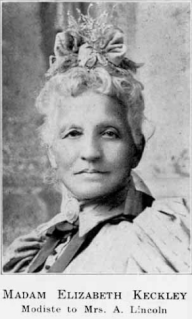A Quote by Angelina Grimke
Can you not see that women could do and would do a hundred times more for the slave, if she were not fettered?
Related Quotes
I went over to see Marina two or three or four times a week. I knew as long as I could see the girl I would be all right…. Soon after, I got a letter from Fay. She and the child were living in a hippie commune in New Mexico. It was a nice place, she said. Marina would be able to breathe there. She enclosed a little drawing the girl had made for me.
What was nice about the nineties is that it was an example of music that responded to a desire of the times. It spoke to the social conditions of the times. Women were making more money. Women were saying, "My voice counts. If we're going out on a Friday night, I don't want to see a Rambo movie. I want to go see a singer/songwriter who sings about my life".
When anesthesia was developed, it was for many decades routinely withheld from women giving birth, since women were "supposed" to suffer. One of the few societies to take a contrary view was the Huichol tribe in Mexico. The Huichol believed that the pain of childbirth should be shared, so the mother would hold on to a string tied to her husband's testicles. With each painful contraction, she would give the string a yank so that the man could share the burden. Surely if such a mechanism were more widespread, injuries in childbirth would garner more attention.
There was a warmth of fury in his last phrases. He meant she loved him more than he her. Perhaps he could not love her. Perhaps she had not in herself that which he wanted. It was the deepest motive of her soul, this self-mistrust. It was so deep she dared neither realise nor acknowledge. Perhaps she was deficient. Like an infinitely subtle shame, it kept her always back. If it were so, she would do without him. She would never let herself want him. She would merely see.
He began to trace a pattern on the table with the nail of his thumb. "She kept saying she wanted to keep things exactly the way they were, and that she wished she could stop everything from changing. She got really nervous, like, talking about the future. She once told me that she could see herself now, and she could also see the kind of life she wanted to have - kids, husband, suburbs, you know - but she couldn't figure out how to get from point A to point B.
It was not the passion that was new to her, it was the yearning adoration. She knew she had always feared it, for it left her helpless; she feared it still, lest if se adored him too much, then she would lose herself, become effaced, and she did not want to be effaced, a slave, like a savage woman. She must not become a slave. She feared her adoration, yet she would not at once fight against it.
She had an overwhelming desire to tell him, like the most banal of women. Don't let me go, hold me tight, make me your plaything, your slave, be strong! But they were words she could not say. The only thing she said when he released her from his embrace was, "You don't know how happy I am to be with you." That was the most her reserved nature allowed her to express.
Only her tight, tight eyes were left. They were always left...They were everything. Everything was there, in them...Thrown, in this way, into the binding conviction that only a miracle could relieve her, she would never know her beauty. She would see only what there was to see: the eyes of other people.
It was ironic, but when you scratched the surface, most successful men were working for one thing only--to retire--and the sooner the better. Whereas women were the complete opposite. She had never heard a woman say she was working so she could retire to a desert island or to live on a boat. It was probably, she thought, because most women didn't think they deserved to do nothing.
I noticed there were so many people, especially women, who would come up to me having recognized me from TV and say, 'I heard you were a math person, why math? Oh my gosh, I could never do math!' I could just see their self-esteem crumbling; I thought that was silly, so I wanted to make math more friendly and accessible.
Yet there were times when he did love her with all the kindness she demanded, and how was she to know what were those times? Alone she raged against his cheerfulness and put herself at the mercy of her own love and longed to be free of it because it made her less than he and dependent on him. But how could she be free of chains she had put upon herself? Her soul was all tempest. The dreams she had once had of her life were dead. She was in prison in the house. And yet who was her jailer except herself?





































